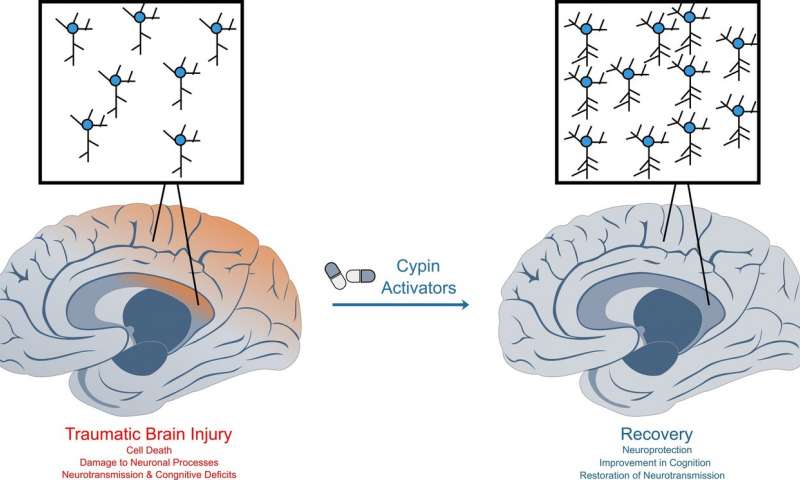
Traumatic brain injury: Discovery of two molecules could lead to new drug treatments
By Todd B. Bates, July 27, 2018, Rutgers University
After 10 years of research, a Rutgers-led team of scientists has identified two molecules that protect nerve cells after a traumatic brain injury and could lead to new drug treatments.
The molecules promote full recovery after traumatic brain injury (TBI) in mice, according to the study published online in Neurobiology of Disease. Traumatic brain injury is the leading cause of death for people under 45 years old in the United States and is associated with disability, early-onset dementia, cognitive disorders, mental illness and epilepsy.
Nearly all approaches for treating TBI focus on trying to prevent neurons, or nerve cells, from degenerating or on attempting to promote their survival, the study notes. TBI typically alters neural circuits within injured brain regions.
“The big issue with treatment after TBI is that there are no drugs that work well on patients to restore memory, and we’re targeting reconnectivity of neural circuitry,” said Bonnie L. Firestein, senior author of the study and a professor in the Department of Cell Biology and Neuroscience at Rutgers University-New Brunswick. “That means we want our neurons to function properly and connect with other neurons. We want to allow people to retain their cognition and ability to remember and learn, so our angle is novel.”
The researchers studied the protein cypin, an enzyme that breaks down guanine, which is an important building block for DNA and RNA in cells. The scientists previously showed that cypin is involved in promoting the proper shape in neurons and “keeping them happy,” Firestein said. This study found that speeding the breakdown of guanine protects neurons from injury and retains brain functioning.
Scientists at Rutgers-New Brunswick, University of Pennsylvania, Fox Chase Chemical Diversity Center Inc. and Columbia University want to develop drugs from the molecules for further studies.

